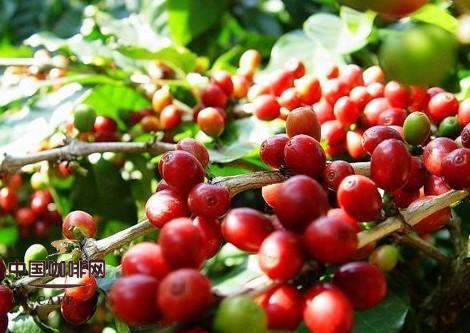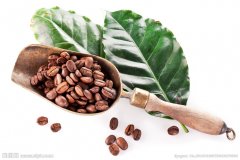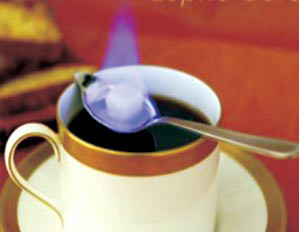How coffee trees in C ô te d'Ivoire (C ô te d'Ivoire te d'ivoire) taste coffee
As long as it is delicious coffee, coffee consumers are willing to pay a high price; as long as delicious coffee is provided, consumers will not abandon coffee and the market will grow. "High-quality coffee represented by boutique coffee is a big business." Coffee producers and consumers have discovered this simple fact.
In recent years, coffee producing countries no longer blindly pursue high output while neglecting quality. Many countries have begun to introduce a new coffee evaluation system in order to arouse the enthusiasm of producers and promote the production of fine coffee. For example, Brazil began to implement the Cup of excellence coffee rating system in 1999 in order to better subdivide boutique coffee. And boutique coffee has become one of the fastest growing markets in the catering service industry, reaching 12.5 billion US dollars in the United States alone in 2007. All these can see the potential of the boutique coffee market, and the boutique coffee market will certainly grow stronger and stronger in the future.
In terms of quantity, it is one of the largest producers in the world.
C ô te d'Ivoire te d'lvoire has never produced the best quality coffee, and it rarely comes from Arabian coffee trees. In the early 1980s, it was the world's third-largest coffee producer, with an annual output of 5 million bags. Even today, it is still the fifth largest coffee producer in the world, with an annual output of 4.4 million bags. In terms of coffee production, C ô te d'Ivoire is second only to Indonesia (6.8 million bags per year).
In the 1980s Ivorian coffee produced only 250 kilograms per hectare. This is partly due to poverty, but also to the aging of coffee trees. Lack of investment and lack of long-term business plans have also affected coffee production.
The Government of C ô te d'Ivoire has begun to take positive measures to reverse the situation. The National Coffee Management Committee has been reorganized and streamlined, and some production activities have been transferred to private companies for management. The government provides a minimum price guarantee to farmers who produce high-quality coffee and encourages exporters to buy directly from farmers. Today, 80% of exported coffee has found a market in European Community countries, with the main buyers being France and Italy.
It is worth noting that C ô te d'Ivoire is the main centre of coffee smuggling, with as many as 2600 tons of coffee smuggled between 1993 and 1994, mainly through the neighbouring countries of Mali (Mali) and Guinea (Guinea).

Important Notice :
前街咖啡 FrontStreet Coffee has moved to new addredd:
FrontStreet Coffee Address: 315,Donghua East Road,GuangZhou
Tel:020 38364473
- Prev

Yega Xuefei taste Cochel Manor Coffee Coffee with fresh and fresh flavor
One of the rarest Ethiopian coffee beans on the market is Ilgachafi, which is exported to Japan and Europe but is rarely seen in the United States. This is because Dallmeyer, a German coffee roaster owned by Nestl, has established a close relationship with the growers of Ilga Chafi coffee, thus obtaining the largest order of this kind of coffee beans.
- Next

Papua New Guinea coffee production area bird of paradise estate introduction
Bird of Paradise is from Pakistan's famous farm Sigri Estate, even if there is no name for this beautiful bird of paradise, it comes from a famous family. Sigri is known for its beautiful environment, pleasant climate, and traditional and rigorous coffee processing. Internationally, if you say Bird of Paradise, it's a bit ambiguous. People can only know that it's beans from Pakistan, but for example,
Related
- Does Rose Summer choose Blue, Green or Red? Detailed explanation of Rose Summer Coffee plots and Classification in Panamanian Jade Manor
- What is the difference between the origin, producing area, processing plant, cooperative and manor of coffee beans?
- How fine does the espresso powder fit? how to grind the espresso?
- Sca coffee roasting degree color card coffee roasting degree 8 roasting color values what do you mean?
- The practice of lattes: how to make lattes at home
- Introduction to Indonesian Fine Coffee beans-- Java Coffee producing area of Indonesian Arabica Coffee
- How much will the flavor of light and medium roasted rose summer be expressed? What baking level is rose summer suitable for?
- Introduction to the characteristics of washing, sun-drying or wet-planing coffee commonly used in Mantenin, Indonesia
- Price characteristics of Arabica Coffee Bean Starbucks introduction to Manning Coffee Bean Taste producing area Variety Manor
- What is the authentic Yega flavor? What are the flavor characteristics of the really excellent Yejasuffi coffee beans?

